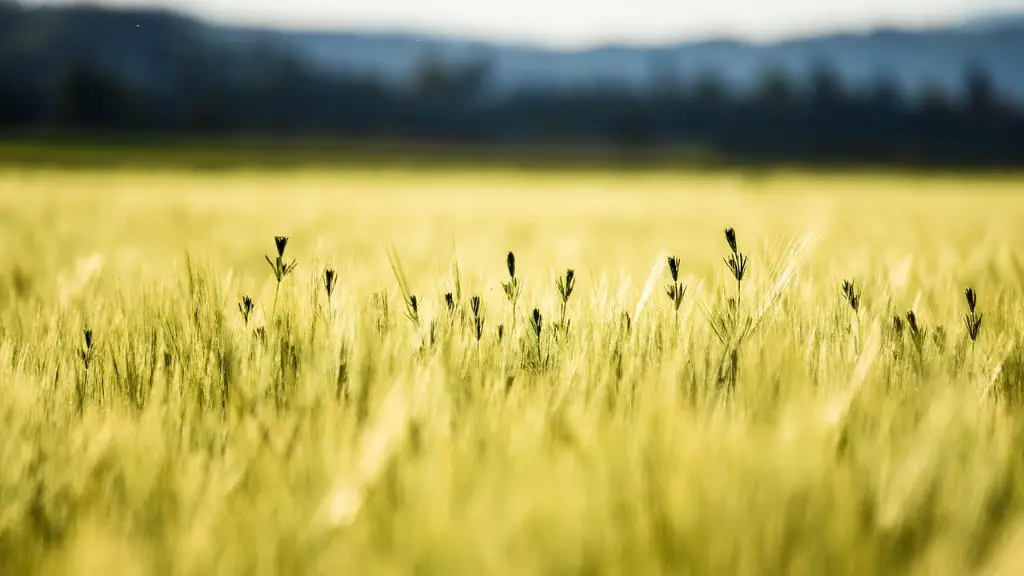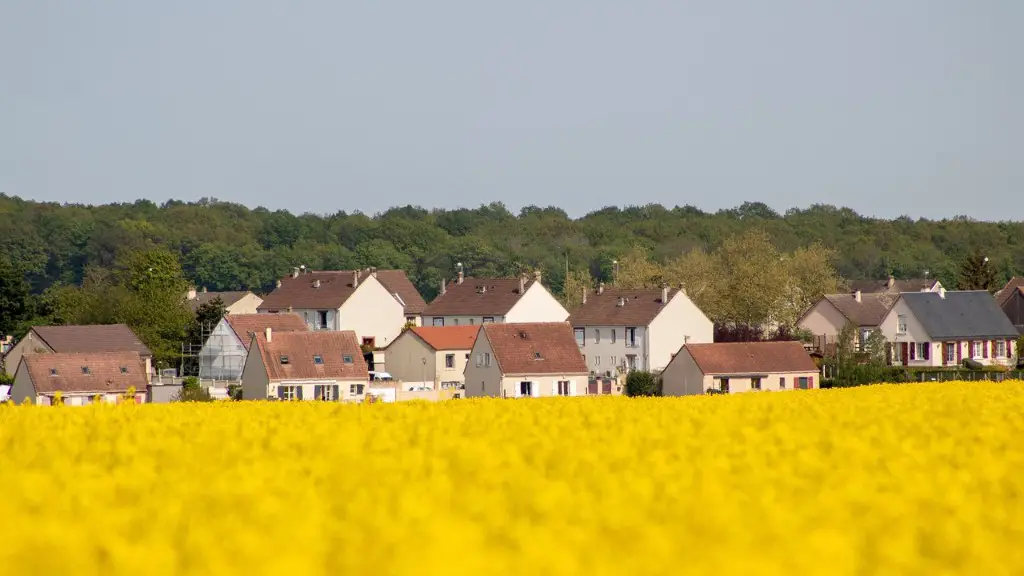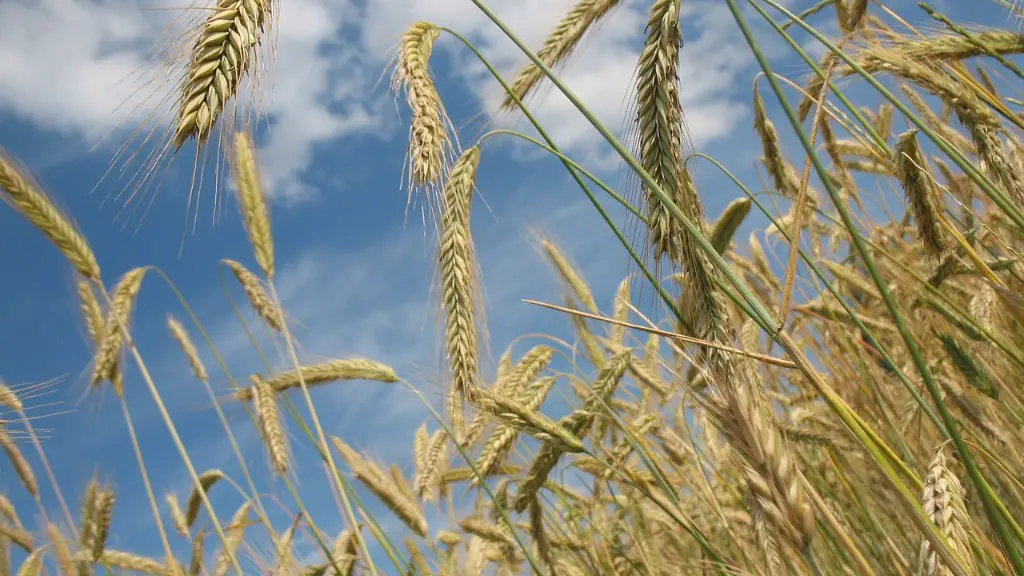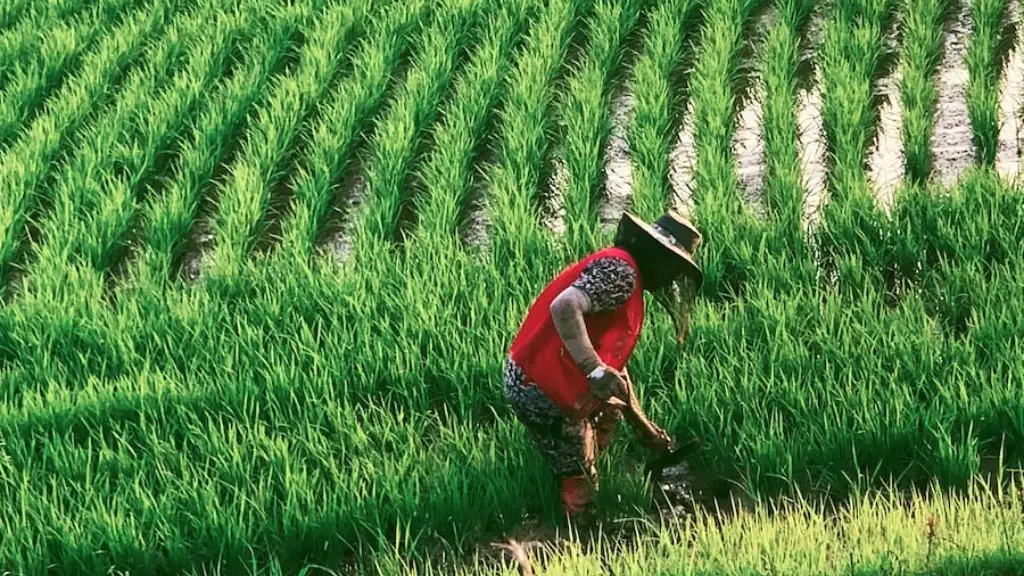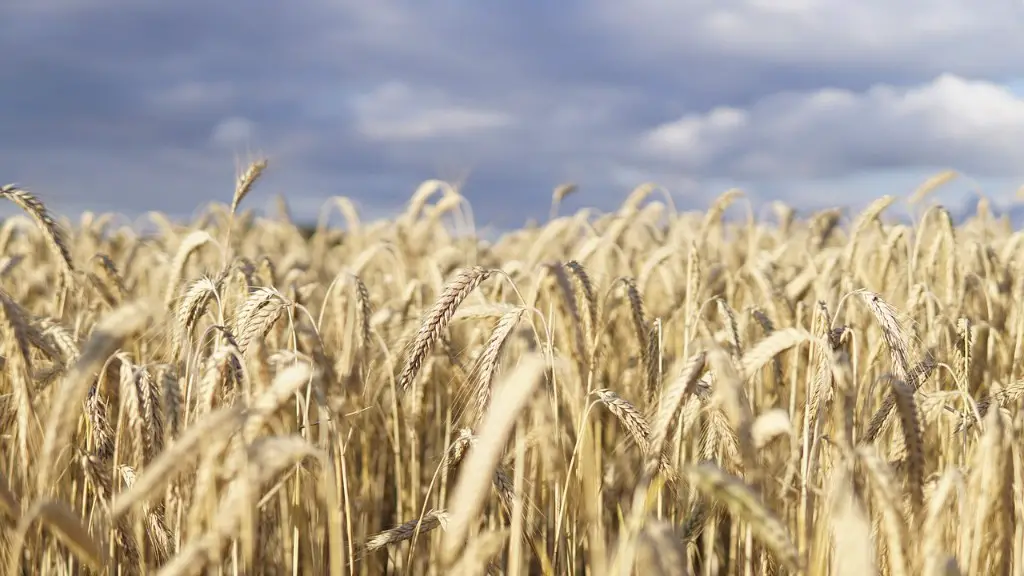Agriculture is a diverse industry that encompasses many different career paths. Those looking for a career in agriculture can find opportunities in a variety of fields such as animal husbandry, crop science, soil science, water management, forestry, farm equipment sales and operations, engineering, finance, and research. There are many opportunities for educated individuals, whether they have degrees in agricultural sciences or not. With carefully considered career choices, one can embark on a prosperous and rewarding career path that has a positive impact on the environment, society, and economy.
One of the most popular careers in agriculture is animal husbandry. Animal husbandry encompasses the breeding and care of animals, with duties such as feeding, exercising, and maintaining a healthy environment for the animals in their care. It is a rewarding career that requires a significant amount of knowledge and skill.Those who want to pursue a career in agriculture must understand the various breed varieties, nutrition needs, and the proper handling of animals.
Crop science is also a popular career choice for those interested in agriculture. Crop science entails the study of crop healthcare and production, from growth and development to harvest, storage, and marketing. Crop scientists must have knowledge on pest control, disease resistance, fertilization, and other aspects of crop production. Those seeking a career in crop science must have at least a bachelor’s degree in the field to be successful.
Those with an interest in soil science can also pursue a great career in agriculture. Soil scientists are responsible for analyzing and evaluating soil for its potential for growing crops, as well as for agricultural production and environmental concerns. Those interested in soil science must understand soil fertility, soil physics, soil-plant nutrition, and soil hydrology, as well as have an educational background in one of these fields.
Water management is also an essential part of the agricultural industry. Water management professionals must have knowledge of water chemistry, hydrology, geology, and soil science, and must be able to make sound decisions about water resource management. Those with a degree in environmental sciences, ecology, or geology may also find a career in water management.
Forestry in Agriculture
Those with an interest in forestry and nature conservation can find a career in the agricultural field. There are numerous job opportunities in forestry, such as in tree planting, harvesting, landscape management, and research. Those interested in forestry should have knowledge of forest ecology, tree physiology, forestry management, and forestry economics, in addition to a bachelor’s degree in one of these fields.
The agricultural industry also offers many opportunities in farm equipment sales and operations. Farm equipment sales employees must have expertise in the use and operation of farm machinery and equipment, and have the ability to provide essential advice to customers. Moreover, those interested in the operation of agricultural machinery, such as tractors, must be knowledgeable about soils and their characteristics, planting and harvesting techniques, and irrigation and fertilization systems, in addition to having the ability to repair and maintain farm equipment.
Engineering within the agricultural field is a highly diversified and specialized occupation. Those interested in agricultural engineering must have a mastery of engineering principles, such as physics, chemistry, and mathematics. Agricultural engineers must also have knowledge of computer science, agricultural production processes, and land management, as well as understand soil science and hydrological methods.
Finance in Agriculture
Finance is also a necessary part of the agricultural industry, although it is often overlooked. Finance professionals must understand the economics and finances of agriculture, and how they relate to the overall industry. They must be able to analyze and interpret financial data, and be able to make decisions on investments and budgets.
Research is a key component in agriculture, and those with research backgrounds may find a career in the agricultural field. Agricultural researchers must possess a strong knowledge of mathematics and statistics, as well as access to the latest technology and research methods. They must also be well versed in biology and the environment, and have expert knowledge of agricultural methods, such as crop rotation, soil cultivation, and irrigation.
Agriculture is a diverse and demanding industry, providing opportunities in a variety of sectors. Those looking for a career in agriculture can find rewarding and meaningful work in animal husbandry, crop science, soil science, water management, forestry, engineering, finance, and research. Properly planned education and training will help one to advance in their chosen field and achieve success.
Animal Husbandry in Agriculture
Animal husbandry is a meaningful career option in the agricultural industry. Those interested in this career must have a special interest in the breeding and caring of animals. They must also be knowledgeable about animal nutrition and various animal breeds in order to succeed. Furthermore, animal husbandry also includes knowledge of proper animal care, such as feeding, exercising, and monitoring the condition of the animals they are in charge of.
To be successful in animal husbandry, those interested in the career must have patience and a caring attitude. They must also have excellent communication skills and the ability to take initiative when needed. Qualified applicants must also have a basic knowledge of the laws and regulations related to animal husbandry, as well as a degree in animal science or related field.
Animal husbandry is a rewarding and exciting career for those looking for a career in agriculture. Working in this field entails being part of a team of professionals dedicated to providing the best care for animals. It also requires being knowledgeable about the specific needs and care requirements for various breeds and species to ensure their health and wellbeing.
Constant understanding and improvement of animal husbandry methods are also necessary. Professionals must understand the latest developments in animal genetics, nutrition, husbandry techniques, and biosecurity measures in order to provide the best possible care for the animals in their charge.
Those interested in a career in animal husbandry must have a strong work ethic, as well as a desire to constantly learn and improve their knowledge and expertise. A career in animal husbandry is a rewarding and fulfilling experience that can make a huge difference in the lives of animals and in the world.
Crop Science in Agriculture
Crop science is another career option in the agricultural field. This career involves understanding and studying the growth, production, and marketing of crops, as well as researching new varieties and ways to increase crop yields. Those interested in crop science must be knowledgeable about crop diseases, pest control, and the best methods of fertilization.
Crop science also involves looking at the economic side of agriculture, such as analyzing markets and adjusting production to ensure maximum profits. Those in this field must understand the important role of technology in modern day agriculture, and be able to use it to their advantage in order to optimize crop yields and minimize environmental impact.
Crop scientists must also have expertise in soil science, irrigation and drainage systems, harvesting, and storage systems. They must also have the ability to identify crop diseases and pests, as well as the skills to develop effective management strategies for those diseases and pests.
Those interested in the field must understand the principles of ecology and the impacts of farmers’ practices on the environment. Crop scientists must also have the organizational skills to coordinate and manage research projects, as well as the ability to effectively communicate their findings in a concise and understandable manner.
Crop science is a great career choice for those looking to make a difference in agricultural production. It allows professionals to utilize their knowledge to improve crop yields and optimize the use of resources. With the right skills and education, one can become an expert in this field and make great contributions to the agricultural industry.
Soil Science in Agriculture
Soil science is a valuable component of the agricultural industry. Soil scientists are experts in soil fertility, soil physics, and soil-plant nutrition. They also have a deep understanding of soil hydrology, as well as an understanding of how soil impacts different crop yields.
Soil scientists are responsible for analyzing and determining the adequacy and utilization of soils for crop production. They must have a deep knowledge of activities such as soil sampling, soil-water analysis, and soil-plant environment interactions. In addition, those in the field must be able to make sound decisions about soil management, nutrient management, and crop rotation.
Those interested in soil science must also have access to the latest technology and research methods. Furthermore, they need to be able to interpret geological and hydrological data in order to make the most accurate predictions.
Soil science is an essential career path in agriculture. Soil scientists are responsible for providing vital information on how soil characteristics affect crop growth and development. Furthermore, they must develop improved soil management strategies in order to maximize crop yields and reduce environmental contamination.
Those interested in a career in soil science must possess a good understanding of mathematics and statistics. They must also be educated in botany, chemistry, biology, and other related disciplines. With the right qualifications and skills, one can become an expert in soil science and make great contributions to the agricultural industry.
